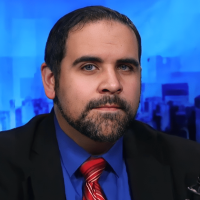The announcement of General David Petraeus’ resignation as CIA director, on Friday, November 9, over an extramarital affair, just days after the re-election of President Obama, has sparked questions of what General Petraeus knew about the terrorist attacks on the U.S. compound in Benghazi and what potential information he may have divulged to his alleged mistress, Paula Broadwell. Four Americans were killed in the attack, including U.S. Ambassador Chris Stevens.
In a letter sent to colleagues on Friday, Petraeus wrote:
Yesterday afternoon, I went to the White House and asked the President to be allowed, for personal reasons, to resign from my position. After being married for over 37 years, I showed extremely poor judgment by engaging in an extramarital affair. Such behavior is unacceptable, both as a husband and as the leader of an organization such as ours….
This afternoon, the President graciously accepted my resignation.
The news of Petraeus’ immediate resignation came rather abruptly and as a shock to many, in light of the current investigation over what happened in Benghazi. Even the intelligence committees of Congress were kept in the dark about the FBI investigation and resignation of Petraeus.
On Fox News Sunday, Senator Dianne Feinstein (D-Calif.), the chair of the Senate Intelligence Committee, told Chris Wallace, “The FBI has briefed me now. I actually wish we had been briefed a little bit earlier…. We received no advanced notice. It was like a lightning bolt.” Feinstein said she would investigate the FBI’s handling of its investigation into Petraeus’ affair and also why top congressional lawmakers were not debriefed about the investigation until it became public.
Originally, both CIA Director Petraeus and Director of National Intelligence (DNI) James Clapper were slated to testify before Congress this week over the September 11 terrorist attack on the U.S. compound in Benghazi, Libya.
The U.S. compound attacked in Benghazi was not a consulate, as originally reported by the media, but rather a U.S. mission and CIA annex. It may also be where U.S. Ambassador Stevens allegedly oversaw the transfer of U.S. weapons to Syrian and Libyan rebels, including to the Libyan Islamic Fighting Group (LIFG), a known al-Qaeda linked terrorist organization according to both the U.S. State Department and U.K. Home Office. Abdul Hakim Belhadj, the leader of the LFIG, was one of NATO’s key “rebel” allies against Moammar Gadhafi.
Petraeus will not testify before Congress this week as originally scheduled. His hearing has been officially put on “hold,” and it is not clear if and when he will testify. Instead, Deputy Director of the CIA Michael Morell (currently acting director) will testify in place of Petraeus this week.
The woman with whom Petraeus had the affair has been revealed as Paula Broadwell, his biographer. Her biography All In: The Education of General David Petraeus was published earlier this year, after she had spent over a year with him familiarizing herself with him.
Broadwell, 40, is a graduate from the U.S. Military Academy at West Point and is an Army Reserve officer. She is married with two young sons.
On Monday, a close associate to Petraeus revealed that FBI investigators had told Petraeus that Broadwell sent anonymous threatening e-mails to Jill Kelley, a Petraeus family friend whom Broadwell viewed as a rival in her affair with Petraeus, according to the Associated Press. The FBI concluded their potential “cyber-harassment” investigation about the e-mails just four days before the election.
On Aaron Klein Investigative Radio, Sunday night, radio host Aaron Klein made note of a YouTube video of Broadwell speaking to an audience at the University of Denver. In the original video, which was later taken down, at 35:40 minutes, during a Q&A session, Broadwell says, “A group of Delta Force operators are … the most talented guys we have in the military. They could have come and reinforced the consulate and CIA annex that were under attack.” She then goes on to reveal previously unreported (perhaps classified) information:
Now I don’t know if a lot of you have heard this, but the CIA annex had actually taken a couple of Libyan militia members prisoner and they think that the attack on the consulate was an effort to get these prisoners back. It’s still being vetted.
If whoever is vetting this determines this to be true then it would suggest the CIA may have been using its Benghazi annex as a secret, even if only temporary, prison. News of a secret CIA prison could be damaging to the Obama administration, suggesting violations of U.S. and international law.
In response to a query by FOX News reporter Eli Lake, the CIA denied that it detained any individuals at that or any other facility: “The CIA has not had detention authority since January 2009, when Executive Order 13491 was issued. Any suggestion that the Agency is still in the detention business is uninformed and baseless.”
The main question, however, remains; how did Broadwell come by this information? The most likely answer would be Petraeus, whom she spent intimate time and contact with.
Broadwell also shed light regarding possible information Petraeus knew within hours of the attack. At 36:10 minutes into the video, she said: “The challenging thing for General Petraeus is that in his new position he’s not allowed to communicate with the press. So he’s known all of this. They had correspondence with the CIA station chief in Libya within 24 hours.”
What Petraeus personally knew then or even knows now will not be known to Congress soon, since he now will not be testifying this week, as previously scheduled. The Broadwell video not only reveals the possibility of the U.S. Benghazi compound being used as a CIA secret prison but also suggests a potential security breach of classified information on the part of CIA Director Petraeus.
According to a Petraeus aide, the affair did not commence until late 2011, which may have compromised U.S. security. Even more startling, the duration of this potential security compromise may have been much longer and may have been well known to the president.
According to Jennifer Griffin and Adam Housley, writing for FOX News, “White House Counter-terrorism advisor John Brennan reportedly was aware that there was a relationship in the summer of 2011.”
Did the White House know about the Petraeus affair for that long and if so did it not consider that as potentially posing a compromise of U.S. security? Again, if so, this would suggest that the White House was knowingly allowing a potential security threat to remain as CIA director. Additionally, due to the still mysterious purpose of the U.S. mission and CIA annex in Benghazi, it would suggest the White House was keeping this information tightly concealed from the American public until after the election.
In an interview with FOX News, Congressman Steve King (R-N.Y.) suggested a possible cover-up by the White House. “It seems this [the investigation] has been going on for several months and, yet, now it appears that they’re saying that the FBI didn’t realize until Election Day that General Petraeus was involved. It just doesn’t add up,” Rep. King said.
It will be some time before the American people learn what Petraeus, and potentially Broadwell, know about what actually transpired in Benghazi on 9/11 and to the true purpose of the U.S. mission and CIA annex in Benghazi.
Photo of Gen. Petraeus with Broadwell: AP Images





